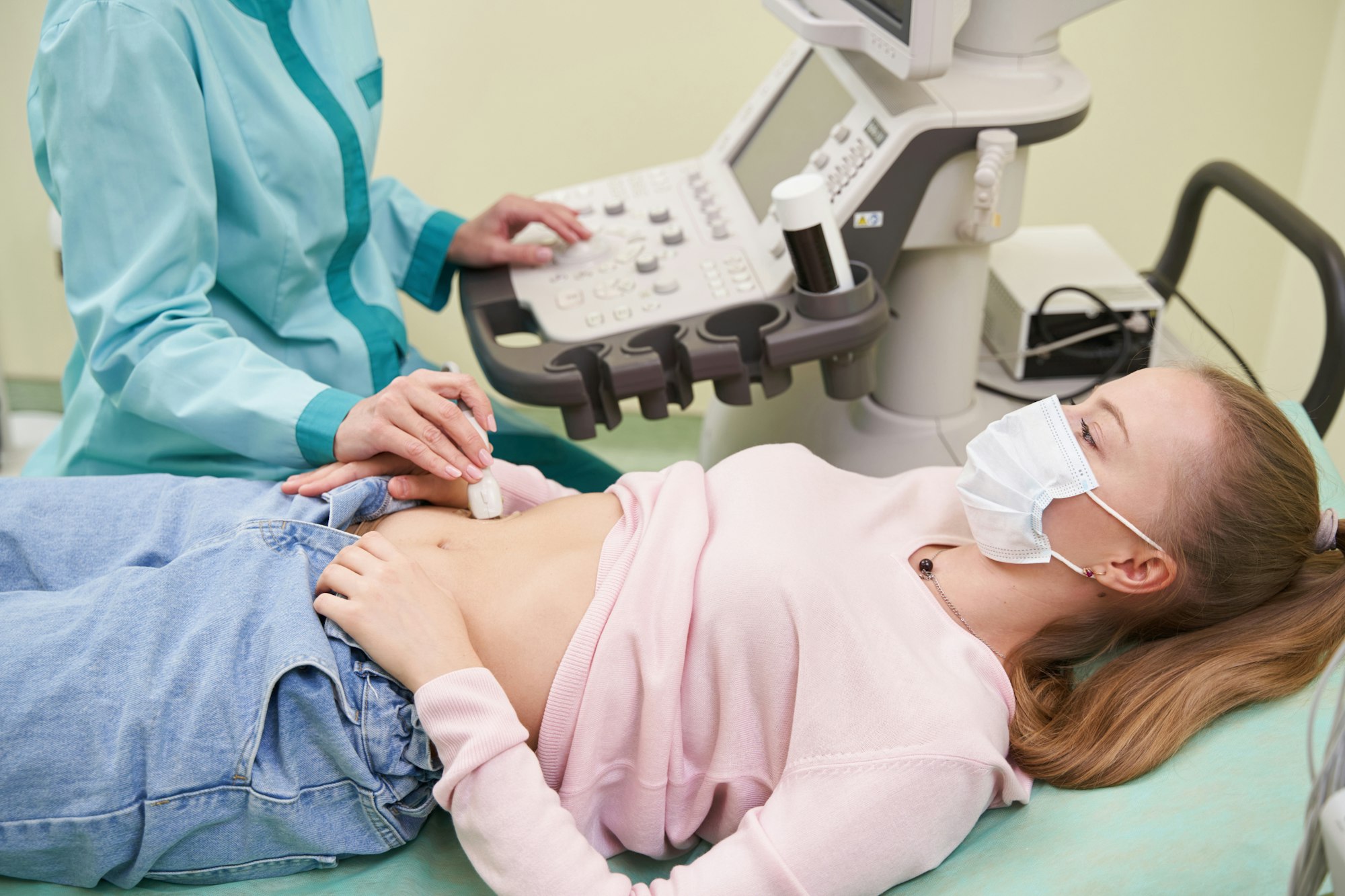Does Medicare Cover Breast Ultrasound for Cancer Detection?
Are you feeling overwhelmed by the complexities of Medicare coverage and understanding Medicare benefits for breast ultrasound? You’re not alone. In this blog post, we’ll break down the basics to help you navigate through the world of eligible breast ultrasound services under Medicare with confidence. Whether you’re a patient seeking information or a healthcare professional looking to expand your knowledge, this guide will provide valuable insights into understanding Medicare benefits for breast ultrasound and its Medicare coverage for breast imaging. Let’s dive in. Does Medicare cover breast ultrasound?
Introduction to Medicare and Breast Ultrasounds
Medicare is a federal health insurance program in the United States that provides coverage to individuals who are 65 years or older, people with certain disabilities, and those with end-stage renal disease. It is divided into four parts – A, B, C, and D – each providing different types of coverage for specific medical services.
One important aspect of Medicare coverage is preventive care. This includes routine screenings such as mammograms and breast ultrasounds for breast cancer detection. Breast ultrasounds are non-invasive imaging tests that use sound waves to produce images of the internal structures of the breasts. They can help detect abnormalities in breast tissue that may not be visible on a mammogram.
Breast cancer is one of the most common cancers among women in the United States, and early detection is crucial for successful treatment. This is where Medicare comes in – providing coverage for annual screening mammograms and additional diagnostic tests like breast ultrasounds when necessary.
It’s important to note that Medicare covers 100% of the cost of an annual screening mammogram for all eligible beneficiaries. However, if a follow-up ultrasound or other diagnostic test is needed due to abnormal findings on the mammogram, there may be some out-of-pocket costs involved depending on which Part (s) of Medicare you have.
For example, if you only have Part A and B (also known as Original Medicare), you will typically pay 20% coinsurance for diagnostic procedures like breast ultrasounds. If you have a supplemental plan such as Medigap or a Part C (Medicare Advantage) plan, these out-of-pocket costs may be reduced or even eliminated altogether.
It’s also worth noting that while an ultrasound can provide valuable information about any abnormalities found during a mammogram, it does not replace a mammogram. These two imaging techniques work together to provide more comprehensive results.
In addition to early detection of breast cancer, breast ultrasounds can also be used to guide biopsies and assist in the monitoring of breast cancer treatment. Medicare provides coverage for these services as well.
What is Medicare and How Does it Work?
What is Medicare and How Does it Work?
Medicare is a federal health insurance program that provides coverage for individuals aged 65 and older, younger people with disabilities, and people with End-Stage Renal Disease (ESRD), a permanent kidney failure requiring dialysis or transplant. It was signed into law in 1965 by President Lyndon B. Johnson as Part of the Social Security Act.
There are four different parts to Medicare – Part A, Part B, Part C, and Part D. Each Part covers different services and has its own costs associated with it. Let’s take a closer look at each Part and how they work.
Part A: Hospital Insurance
Medicare Part A provides coverage for inpatient hospital stays, skilled nursing facility care, home health care, and hospice care. Most people do not have to pay a premium for Part A since they or their spouse have already paid for it through payroll taxes while working. However, there may be other costs associated with this Part, such as deductibles, copayments, or coinsurance.
Part B: Medical Insurance
Medicare Part B covers medically necessary services like doctor visits, preventive care services, outpatient care, durable medical equipment (DME), and some home health services. Unlike Part A, which is automatically given to eligible individuals when they turn 65 years old or have certain disabilities, Medicare Part B requires enrollment during an initial enrollment period, which usually starts three months before your 65th birthday month and ends three months after your birth month.
Part C: Medicare Advantage Plans
Also known as Medicare Advantage plans or ‘MA plans,’ these are offered by private companies that are approved by Medicare to provide all-in-one healthcare benefits that include Parts A and B along with prescription drug coverage (Part D). Some MA plans may also offer additional benefits like vision or dental coverage at an extra cost.
Part D: Prescription Drug Coverage
This Part of Medicare provides coverage for prescription drugs. Like Part B, it is administered by private insurance companies that are approved by Medicare. You can enroll in a standalone Part D plan if you have original Medicare (Part A and/or Part B) or through a Medicare Advantage plan that includes prescription drug coverage.
Coverage for Breast Ultrasounds under Medicare
Breast ultrasounds are a vital tool in the early detection and diagnosis of breast cancer, making it a crucial procedure for women over the age of 50. As such, understanding the coverage options for breast ultrasounds under Medicare is essential for women to receive timely and effective healthcare.
Under Medicare, there are two parts that provide coverage for breast ultrasounds: Part B (medical insurance) and Part A (hospital insurance).
Part B covers diagnostic mammograms and screening mammograms once every 12 months for women over the age of 40, with no out-of-pocket costs. However, if your doctor recommends additional tests, such as an ultrasound or biopsy after a mammogram, those procedures may also be covered by Part B.
On the other hand, Part A provides coverage for inpatient hospital stays and related services. This may include breast ultrasounds if they are considered necessary during an inpatient stay related to breast cancer treatment.
It is important to note that both Part A and B have deductibles and coinsurance that can vary depending on individual plans. It is recommended to check with your specific plan provider to understand what out-of-pocket costs you may incur.
In addition to traditional Medicare coverage, there are also supplemental insurance plans known as Medigap policies that cover expenses not typically included in Parts A or B. These plans can help cover out-of-pocket costs such as deductibles or coinsurance associated with diagnostic tests like breast ultrasounds.
Furthermore, some Medicare Advantage Plans (Part C) offer additional benefits beyond what is covered by original Medicare. These plans often include coverage for preventive screenings like mammograms and may also cover follow-up procedures such as ultrasounds if recommended by a doctor.
In order to ensure proper coverage under Medicare, it is crucial to have regular communication with your healthcare provider regarding any potential diagnostic tests or screenings needed. Your doctor can help determine what is covered under your specific plan and make any necessary referrals.
Medicare provides coverage for breast ultrasounds through both Part A and B, with potential additional coverage options through Medigap policies or Medicare Advantage Plans. By understanding the coverage options available, women can receive timely and essential healthcare for the early detection and diagnosis of breast cancer.
Reasons for Getting a Breast Ultrasound
Breast ultrasounds are an important diagnostic tool used to assess breast health and detect any abnormalities that may be present. While mammograms are the most common form of breast screening, there are several reasons why a doctor may recommend a breast ultrasound in addition to or instead of a mammogram for some individuals.
1. Dense Breast Tissue: One of the main reasons for getting a breast ultrasound is if you have dense breast tissue. This refers to breasts with more glandular and fibrous tissue than fatty tissue, which can make it difficult for mammograms to detect abnormalities. Ultrasounds can provide a clearer image of dense breast tissue and help identify any potential issues that might not be seen on a traditional mammogram.
2. Younger Age: Mammograms are generally recommended as the standard screening method for women over 40 years old. However, younger women with certain risk factors, such as family history or genetic mutations, may benefit from adding an ultrasound to their routine screenings. This is because younger women tend to have denser breasts, making it harder for mammograms alone to provide accurate results.
3. Additional Evaluation: If further evaluation is needed following a routine screening or physical exam, doctors may recommend an ultrasound as it provides more detailed images than other imaging techniques like X-rays or MRIs. This can help determine if any suspicious findings require additional testing or follow-up care.
4. Breast Lumps or Changes: Any noticeable changes in the size, shape, or texture of your breasts should always be discussed with your doctor immediately. A lump in your breast does not necessarily mean cancer but requires further investigation through imaging tests like ultrasounds to rule out any serious conditions.
5. Painful Breasts: Breast ultrasounds can also aid in diagnosing the cause of pain in the breasts. While many cases of breast pain are benign, such as hormonal changes during menstruation, persistent pain should always be evaluated by your doctor.
6. Breast Implants: For women who have undergone breast augmentation surgery, ultrasounds can be an effective tool for monitoring the integrity of the implants and detecting any potential complications such as ruptures or leaks.

Benefits of Using New Medicare for Your Breast Ultrasound Needs
When it comes to healthcare, many people rely on Medicare to help cover the costs of necessary medical procedures. Breast ultrasounds are a vital tool in detecting and diagnosing breast cancer, making them an essential service for women over 40 years old. If you’re considering getting a breast ultrasound, using Newmedicare can offer numerous benefits.
1. Comprehensive Coverage: One of the major benefits of using Newmedicare for your breast ultrasound needs is that it provides comprehensive coverage. Medicare Part B covers 80% of the cost of a diagnostic mammogram or breast ultrasound, leaving you with only a 20% out-of-pocket expense. This coverage includes both screening and diagnostic tests, depending on your individual situation.
2. Cost Savings: With traditional healthcare providers, you may have to pay deductibles or coinsurance fees when getting a breast ultrasound. However, with newmedicare, these additional expenses are typically waived. This means significant cost savings for you when it comes to this important medical procedure.
3. Access to High-Quality Providers: Medicare works with accredited facilities and experienced healthcare providers who offer quality services at affordable rates. By choosing Newmedicare, you can rest assured that your breast ultrasound will be performed by qualified and skilled professionals who adhere to strict standards of care.
4. No Referral Required: Unlike other insurance plans that may require a referral from your primary care physician for certain services, Medicare gives beneficiaries the freedom to choose their preferred provider without needing any referrals. This makes it easier for individuals to schedule their breast ultrasounds at their convenience without having to go through the hassle of obtaining referrals.
5. Continued Follow-Up Care: If your breast ultrasound results show any concerning findings or abnormalities, Medicare will cover follow-up screenings such as MRIs or biopsies as deemed medically necessary by your doctor. Having access to ongoing follow-up care helps ensure early detection and treatment if needed.
Step-by-Step Guide to Using Medicare for a Breast Ultrasound
1. Understand your coverage: The first step in using Medicare for a breast ultrasound is understanding your coverage. Medicare Part B covers diagnostic tests, including breast ultrasounds, when deemed medically necessary by your doctor. It also covers 80% of the cost of the procedure, leaving you responsible for the remaining 20%.
2. Consult with your doctor: Before scheduling a breast ultrasound, it’s important to consult with your doctor to determine if it is necessary and if it will be covered by Medicare. Your doctor may need to provide documentation or submit a prior authorization request for Medicare to approve the procedure.
3. Find an in-network provider: it’s important to find an in-network provider who accepts Medicare assignment. This means that they have agreed to accept the approved amount from Medicare as full payment and cannot charge you more than the 20% coinsurance.
4. Schedule the appointment: Once you have found an in-network provider and received approval from Medicare, you can schedule your breast ultrasound appointment at a convenient time and location.
5. Bring necessary documents: On the day of your appointment, be sure to bring all necessary documents with you, including your Medicare card and any other insurance cards that may cover additional costs.
6. Prepare for the procedure: Your healthcare provider will give you specific instructions on how to prepare for your breast ultrasound. In general, you may be asked to wear loose-fitting clothing and avoid wearing jewelry or lotions on your chest area.
7. Have someone accompany you (optional): Although not required, it can be helpful to have someone accompany you during the procedure for emotional support and assistance with transportation afterward.
8. Undergo the procedure: During the breast ultrasound, a technician will use sound waves to create images of your breasts that can help detect any abnormalities or changes within them.
9. Pay any remaining costs: As mentioned earlier, Medicare covers 80% of the cost of breast ultrasound, leaving you responsible for the remaining 20%. This can be paid at the time of service or billed to you afterward.
10. Follow up with your doctor: After your breast ultrasound, it’s important to follow up with your doctor to discuss the results and any necessary next steps for further evaluation or treatment.
Common Misconceptions about Medicare and Breast Ultrasounds
There are many misconceptions surrounding Medicare coverage for breast ultrasounds. In this section, we will address some of the most common ones and provide accurate information to help you better understand your coverage.
Misconception #1: Medicare covers all types of breast ultrasounds.
This is not entirely true. Medicare does cover diagnostic breast ultrasounds, which are used to evaluate a specific area or abnormality found during a routine mammogram. However, it does not cover screening breast ultrasounds, which are used as a primary method for detecting breast cancer in women with dense breast tissue.
Misconception #2: A referral from a doctor is not required for Medicare coverage of breast ultrasounds.
In order for Medicare to cover a diagnostic breast ultrasound, it must be ordered by a doctor or other qualified healthcare provider. This means that you cannot simply schedule one on your own without a referral from your physician. This requirement also applies to any additional imaging tests or procedures that may be recommended based on the results of the ultrasound.
Misconception #3: Breast ultrasounds are only covered once every two years under Medicare.
While it is true that Medicare typically covers screening mammograms once every 24 months (or once every 12 months if considered high-risk), there is no such limitation for diagnostic breast ultrasounds. If deemed medically necessary by your doctor, you can receive more than one diagnostic ultrasound within a year and still have it covered by Medicare.
Misconception #4: There is no out-of-pocket cost for Medicare-covered breast ultrasounds.
Unfortunately, this is not always the case. While Medicare Part B generally covers 80% of the cost of diagnostic tests like an ultrasound, you may still be responsible for paying the remaining 20%. The exact amount will depend on whether or not you have met your annual deductible and if there are any coinsurance or copayment amounts associated with your specific plan.
Misconception #5: Medicare does not cover breast ultrasounds for men.
Although breast cancer is much less common in men than in women, it can still occur. When it does, Medicare will cover diagnostic breast ultrasounds for male beneficiaries under the same guidelines as female beneficiaries. It’s important to note, however, that screening mammograms are typically only covered for women and may not be covered for men under Medicare.
Conclusion
It is clear that Medicare plays a crucial role in providing access to healthcare services for millions of Americans. It is especially important for women to understand the benefits and coverage options available for breast ultrasounds under Medicare.
NewMedicare has made significant improvements and updates to its coverage options, making it easier for beneficiaries to access necessary screenings and treatments. Breast ultrasounds are now covered as a preventive service under Medicare Part B, allowing eligible individuals to receive this life-saving screening at no cost.
By taking advantage of NewMedicare’s coverage for breast ultrasounds, you can ensure early detection and treatment of any potential breast abnormalities. This could potentially save your life or the life of a loved one. Breast cancer is the second leading cause of cancer death among women in the United States, but with regular screenings, it can be detected at an early stage when treatment is most effective.
Furthermore, NewMedicare offers additional resources and support for beneficiaries who may need further testing or treatments after a breast ultrasound. This includes covering diagnostic mammograms, biopsies, and other necessary procedures.
It is also important to note that NewMedicare covers these services regardless of your income level or pre-existing conditions. No one should have to forego essential healthcare screenings due to financial constraints, which is why Medicare ensures access for all eligible individuals.
Moreover, taking advantage of NewMedicare’s coverage options not only benefits your health but also helps reduce overall healthcare costs. Early detection through preventive services such as breast ultrasounds can lead to less expensive treatments in the long run compared to advanced-stage diagnoses.
Suppose you are eligible for Medicare benefits and concerned about your breast health – whether due to family history or other risk factors – it is vital that you take advantage of NewMedicare’s coverage options. Don’t delay getting screened; talk to your healthcare provider about scheduling a breast ultrasound today. Your health is worth investing in, and with NewMedicare, you can ensure that you receive top-quality care without financial burden.
If you’re over the age of 65 years and want to learn more about Medicare Plan, please visit Newmedicare.





